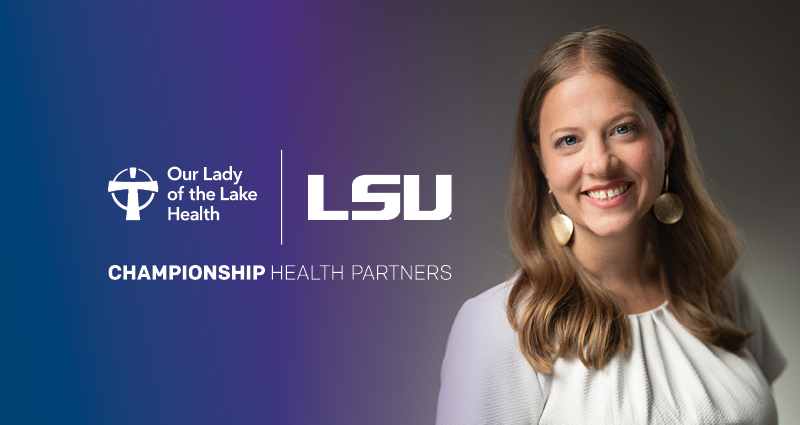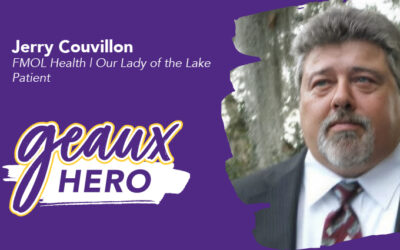Stress, physical limitations, emotional struggles — these are challenges that patients face every day. But what if the solution wasn’t a pill or a procedure but a melody?
That’s the idea driving Mandy Creekmore, a music therapist whose work at LSU and Our Lady of the Lake is redefining how we approach healing.
The Power of Music
“I love people. I love music. And bringing them together is the perfect match,” Creekmore says.
That passion forms the foundation of her work in music therapy. Unlike traditional views of music as performance or education, her research focuses on its nonmusical applications: helping hospital patients recover and thrive.
Music therapy offers benefits across physical, cognitive and emotional dimensions. From training gait patterns to aiding speech recovery and improving motor skills, the applications are as diverse as they are impactful.
How Music Therapy Helps Heal
One of the most striking ways music therapy aids recovery is by helping patients regain motor function. For example, using wind instruments can stimulate lung capacity and breath control, essential for trauma patients or those recovering from surgery. Music therapy can also be particularly useful for improving fine motor skills and supporting physical recovery.
Another powerful application is in the treatment of Parkinson’s disease, where music therapy addresses motor challenges like a shuffling gait. Using rhythmic auditory stimulation, patients are guided to match their walking pace with a steady rhythm, improving stride length and gait symmetry.
Music therapy is also used in the NICU to support the earliest stages of life. Despite the traditionally overstimulating environment of a neonatal intensive care unit, music provides structure and predictability, which is beneficial for newborns. Research shows that when babies in the NICU are exposed to music, it can help regulate their respiratory and heart rates, improve oxygen saturation and reduce distress behaviors, often resulting in shorter hospital stays and faster weight gain.
“Music therapy can benefit people in all kinds of ways,” Creekmore says. “It’s not just about music — it’s about helping people achieve nonmusical goals.”
A Perfect Time for Innovation
With growing support from organizations like the National Institutes of Health and a budding music therapy program at LSU, Creekmore sees this as the perfect moment to expand research in the field.
“There’s so much we don’t know yet, but we’re at a point where we can begin harnessing the power of music in ways we’ve never imagined,” she says.
Her work aims to uncover new therapies that help patients unlock their potential, changing how care teams listen to and treat individuals. Creekmore also teaches at LSU, training the next generation of music therapy professionals who will carry this important work forward, expanding the use of music therapy across a wide variety of fields.
The Impact of Champions
Creekmore’s research is a shining example of the power of collaboration. As Championship Health Partners, Our Lady of the Lake and LSU’s alliance is not just about advancing science — it’s also about creating real-world impact.
“I think what we can do for our patients is limitless,” Creekmore says. “Together, we harness the power of music to help others.”
From aiding recovery after trauma to offering innovative solutions for cognitive and motor challenges, music therapy opens new doors for healing.
Why It Matters
Creekmore’s research is about more than just music — it’s about unlocking the mind in exciting new ways, fostering resilience and building a future where care meets creativity. The collaborative work being done today embodies a shared vision for transformative healing, one that blends science and soul to improve lives.




